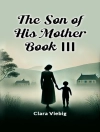Set against the turbulent backdrop of the Napoleonic Wars, Thomas Hardy’s ‘The Trumpet-Major’ masterfully intertwines themes of love, duty, and the complexities of human choices. Hardy employs a rich, descriptive prose style, reflecting both the physical landscape and emotional turmoil of his characters. The narrative oscillates between the personal lives of its protagonists and the larger historical context, showcasing Hardy’s prowess in capturing the essence of rural English life and the impact of broader societal forces. The story revolves around the interplay of three suitors vying for the affections of the spirited Anne Garland, illustrating the intersection of romance and conflict. Thomas Hardy, born in 1840 in Dorset, England, was profoundly influenced by the rural settings and the socio-political climate of his time. His experiences as an architect and deep appreciation for rural England shaped his literary voice, which often critiques societal norms and reflects a deterministic view of human existence. ‘The Trumpet-Major, ‘ published in 1880, illustrates Hardy’s concern with the repercussions of historical events on individual lives, drawing on his own heritage and the folklore of the region. This novel is particularly recommended for readers who appreciate historical fiction that delves deeply into character development and moral dilemmas. Hardy’s nuanced exploration of human relationships within a historically rich context makes ‘The Trumpet-Major’ a compelling read. Whether you are a fan of Hardy’s other works or new to his writing, this book invites readers to contemplate the nature of love amidst the specter of war.
About the author
Thomas Hardy (1840–1928) was an English novelist and poet, widely regarded as one of the seminal writers of the Victorian era. His works are celebrated for their exploration of the human condition, their portrayal of life’s hardships, and the social constraints of the times. A native of Dorset, Hardy’s evocative descriptions of the rural English countryside are often interwoven with the fates of his complex characters. Hardy’s fourth novel, ‘The Trumpet-Major’ (1880), departs from his usual tragic tone, offering a historical romance set during the Napoleonic Wars. Although not as renowned as ‘Tess of the d’Urbervilles’ (1891) or ‘Far from the Madding Crowd’ (1874), ‘The Trumpet-Major’ remains noteworthy for its detailed historical setting and a lighter, yet insightful narrative style. Hardy’s novels typically dissect social mores, with a keen critique of class structures and a deterministic outlook on life, where fate often rules supreme. His narratives are marked by their tragic elements, intricate character studies, and a pervasive sense of inevitability, which have prompted scholars to both praise and scrutinize his unique literary contributions. After consecrating his last years to poetry, Hardy cemented his place among the pantheon of great English writers, leaving a legacy that continues to resonate through the literary world.












